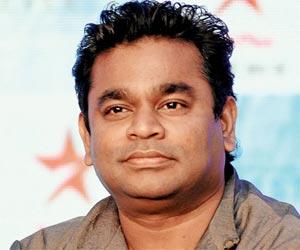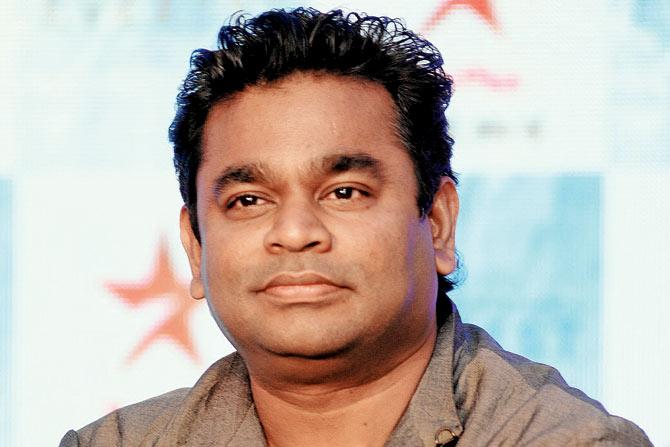Music maestro A.R. Rahman on Friday unveiled a 19-minute music piece titled "The flying lotus", based on Prime Minister Narendra Modi government's move to demonetise high value currency notes.

Music maestro A.R. Rahman on Friday unveiled a 19-minute music piece titled "The flying lotus", based on Prime Minister Narendra Modi government's move to demonetise high value currency notes. But he says he's "not making a judgment" with the piece. In November last year, Modi announced that the government had decided to demonetise Rs 500 and Rs 1,000 notes to tackle the menace of black money. It was met with mixed reactions in the country, with major criticism coming from many quarters.
ADVERTISEMENT

A.R. Rahman
Now Rahman, who had earlier made a reference to demonetisation in his new version of the popular 1994 track "Urvasi Urvasi", has taken inspiration from it for his latest music piece in collaboration with the Seattle Symphony, one of America's leading symphony orchestras. "'The flying lotus' is an impression of the rise of India... the whole journey of India. I wanted to do something on what was going on in India during demonetisation and what will happen in the future. It's open to interpretations," Rahman told IANS in an interview.
Asked about his collaboration with the Seattle Symphony, the Grammy winner said: "They wanted something... maybe simple. Since I had an inspiration to do this, they were very receptive and encouraging. They loved the idea and found it very innovative. It was a great team" adding "For a composer to get an orchestra like that, is always a dream."
"The flying lotus" was premiered by the Seattle Symphony with conductor Ricardo Averbach at Celebrate Asia, an annual concert that features music by famous Japanese, Chinese, Korean and Indian composers, in May. The emotionally charged track is interspersed with a few lines from Modi's speech on demonetisation along with others stressing on "digital economy", the country going "cashless" and "dhan dhana dhan" (wealth).
What's his take on demonetisation? "I think the intention was right. This (the track) is not about me making a judgement. How would I know about something so big? But I know what people are talking about, the Chinese whispers, the good and the bad. That's what I have put in my piece. It is interesting to have an orchestra and expression like that. The subject is very relevant to every Indian," he said.
"The music is an optimistic approach and also a journey of what we have been through. I think that's what it should be. It is not about personal agenda or religion. It is about uplifting the poor. It's about making our nation the best in the world," he added. Prior to its release, Rahman said: "It will be released like a normal release by Universal Music India, but I will send a copy to our PM and important people. I would love to share my work with them."
Going by the title of track, it seems like he is happy with Bharatiya Janata Party as the ruling party in India. "I am happy with India...always. I am an Indian," he said. After creating a piece on a subject, which is considered to be Modi's biggest move, would Rahman like to compose for any of the government's campaigns?
"If I have time, then yes," said the "Maa tujhe salaam" hitmaker. Is he inching closer to joining politics? "No. I don't have time for it. I want to be in music and movies," said Rahman, whose A.R. Rahman Encore - The Concert, in association with MTV, will celebrate his 25 years in music. The event will take place in four Indian cities -- New Delhi, Hyderabad, Ahmedabad and Mumbai in November and December.
 Subscribe today by clicking the link and stay updated with the latest news!" Click here!
Subscribe today by clicking the link and stay updated with the latest news!" Click here!







